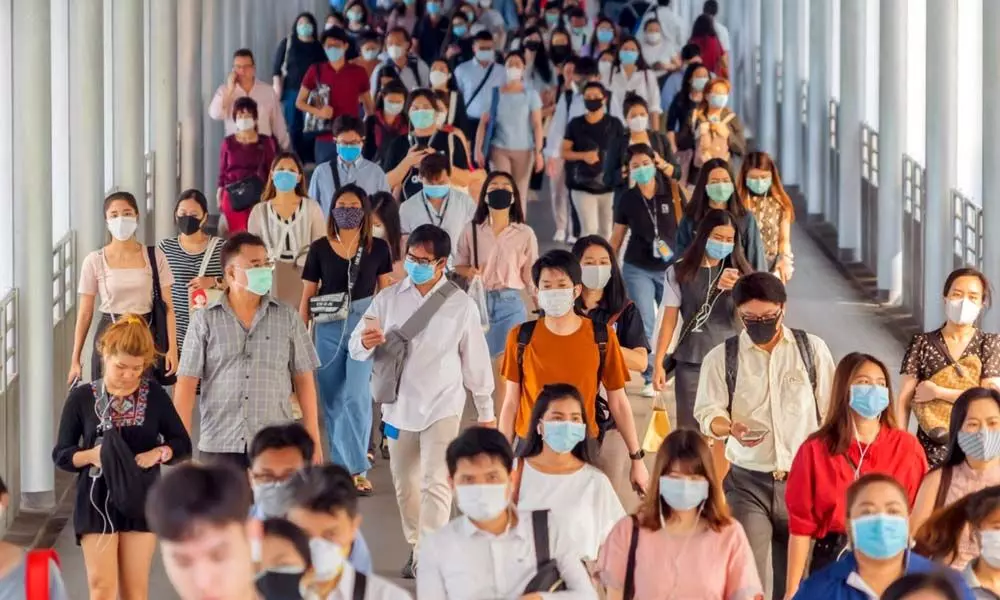Exploring safe travel in the age of vaccines
Looking further ahead, most experts do not see a return to pre-pandemic levels happening before 2023
image for illustrative purpose

Due to the evolving nature of the pandemic, many countries are now reintroducing stricter travel restrictions. These includes mandatory testing, quarantines and in some cases a complete closure of borders, all weighing on the resumption of international travel. At the same time, the gradual rollout of a Covid-19 vaccine is expected to help restore consumer confidence, contribute to the easing travel restrictions and slowly normalise travel during the year ahead
Global tourism suffered its worst year on record in 2020, with international arrivals dropping by 74 per cent, according to the latest data from the World Tourism Organisation (UNWTO). Destinations worldwide welcomed 1 billion fewer international arrivals in 2020 than in the previous year, due to an unprecedented fall in demand and widespread travel restrictions. This compares with the 4 per cent decline recorded during the 2009 global economic crisis.
According to the latest UNWTO World Tourism Barometer, the collapse in international travel represents an estimated loss of $1.3 trillion in export revenues - more than 11 times the loss recorded during the 2009 global economic crisis. The crisis has put between 100 and 120 million direct tourism jobs at risk, many of them in small and medium-sized enterprises. While much has been made in making safe international travel a possibility, we are aware that the crisis is far from over.
Due to the evolving nature of the pandemic, many countries are now reintroducing stricter travel restrictions. These includes mandatory testing, quarantines and in some cases a complete closure of borders, all weighing on the resumption of international travel. At the same time, the gradual rollout of a Covid-19 vaccine is expected to help restore consumer confidence, contribute to the easing travel restrictions and slowly normalize travel during the year ahead.
The harmonisation, coordination and digitalisation of Covid-19 travel-related risk reduction measures, including testing, tracing and vaccination certificate, are essential foundations to promote safe travel and prepare for the recovery of tourism once conditions allow.
The overall prospects of a rebound in 2021 seem to have worsened. As and when tourism does restart, the UNWTO Panel of Experts foresee growing demand for open-air and nature-based tourism activities, with domestic tourism and 'slow travel' experiences gaining increasing interest.
Looking further ahead, most experts do not see a return to pre-pandemic levels happening before 2023. In fact, 43 per cent of respondent points to 2023, while 41 per cent expect a return to 2019 levels will only happen in 2024 or later. UNWTO's extended scenarios for 2021-2024 indicate that it could take two-and-a-half to four years for international tourism to return to 2019 levels.
Asia and the Pacific (-84 per cent) - the first region to suffer the impact of the pandemic and the one with the highest level of travel restrictions currently in place - recorded the largest decrease in arrivals in 2020 (300 million fewer). The Middle East and Africa both recorded a 75 per cent decline.
Europe recorded a 70 per cent decrease in arrivals, despite a small and short-lived revival in the summer of 2020. The region suffered the largest drop in absolute terms, with over 500 million fewer international tourists in 2020. The Americas saw a 69 per cent decrease in international arrivals, following somewhat better results in the last quarter of the year.
The Global Tourism Crisis Committee has met for the first time in 2021. Organized by the World Tourism Organization (UNWTO), the cross-sector body met in Madrid during the 113th session of the UNWTO Executive Council to advance solid plans to restart tourism. The meeting focused on the integration of vaccines into a harmonized approach to safe travel and launching a coordinated effort to boost confidence in the sector.
With countries around the world now rolling out vaccines against the Covid-19 virus, the Committee noted that this opens a critical window in the fight against the pandemic and to promote the safe resumption of international travel. Members highlighted the importance of stepping up coordination, within the framework of the International Health Regulations, of vaccination certificates to ensure the implementation of common, harmonized digital related travel principles, protocols and documents. This would be in line with the work being carried out by the World Health Organisation (WHO), which has reported as potential applications of digital technology to enable safe international travel and facilitate arrivals and departures.
The United for Travel campaign will help achieve this, providing a clear and strong message that safe tourism is now possible.
Since the start of the crisis, UNWTO has convened the Committee to bring together governments, public and private sector leaders and international organizations to form a united and efficient response.
That the vaccination opens a critical window of opportunity to fight the Covid-19 pandemic and promote the safe reassuming of international travel alongside other risk mitigation tools such as Covid-19 testing.

